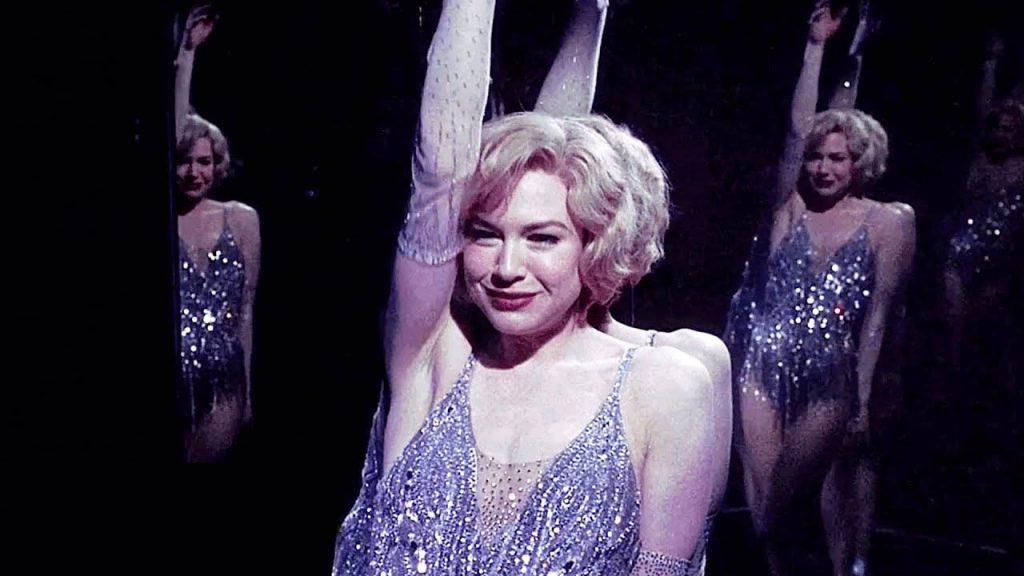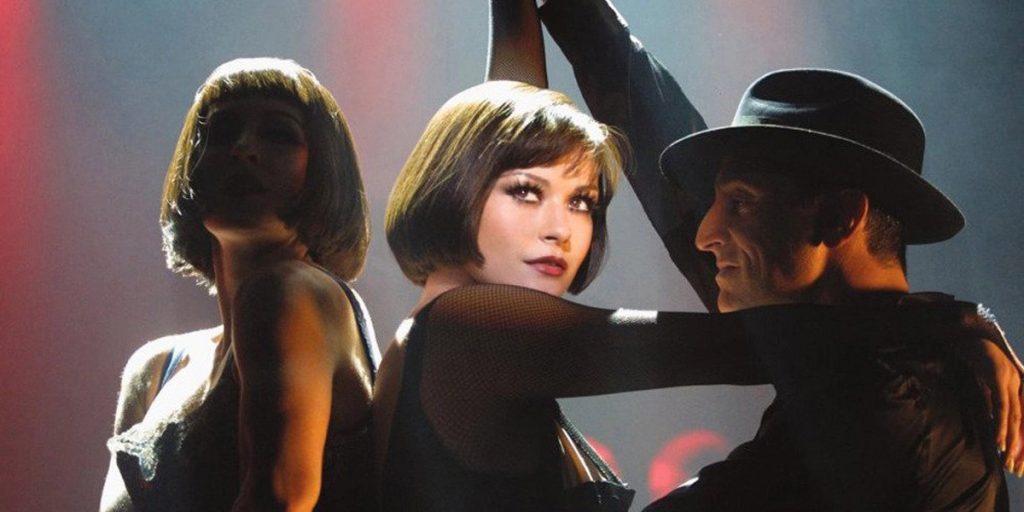With next year seeing the 20th anniversary of the film’s release, we look at Rob Marshall’s Chicago to see why it’s a brilliant musical adaption.
Next year marks 20 years since the release of the film adaptation of the 1975 musical Chicago. Set in the Jazz Age, it tells the wickedly fun story of Roxie Hart (Renée Zellweger) and Velma Kelly (Catherine Zeta-Jones) as they await trials for murder and fight for the attention of lawyer Billy Flynn (Richard Gere). When Chicago was released in 2002, it was a massive success. It served as the breakthrough for director Rob Marshall, the choreographer who made his feature film debut here. It also served as a breakthrough for movie musicals in general. It won 6 Oscars, including one for Best Picture – the first time a musical had won the big prize since 1969’s Oliver!. Now, nearly two decades later, I want to examine how Chicago holds up by asking two specific questions. Firstly, what makes it such a good musical adaptation? And secondly, what is its legacy?
Firstly, a little context. By the early 1970s, musicals such as Doctor Doolittle and Hello Dolly had become commercial flops, sparking the end of the ‘roadshow’ Hollywood movie musical. As Hollywood began a renaissance period that broke away from the past, movie musicals had to respond by being grittier, more serious. Enter Bob Fosse’s Cabaret, which celebrates its 50th anniversary in February. In adapting the 1966 Broadway hit to the big screen, Fosse made a film that mentioned abortion, corruption and the rise of fascism in 1930s Germany. It proved the movie musical could change with the times. Fosse’s influence is all over Chicago and its seedy late 1920s setting, mostly because he directed, choreographed and wrote the book for the original Broadway musical.
To play up the film’s more theatrical aspects, Marshall and screenwriter Bill Condon (Gods and Monsters) decided to have the musical numbers performed on-stage, as if they were part of a spectacular vaudeville show. And they are all shown to take place in the imagination of Roxie, the wannabe vaudeville star. This means the film doesn’t have to stop the frenetic pace to set up each song, and it sets up two worlds that enforce Roxie’s burning obsession. There is real life, and then there is the stage. Roxie’s life and what she wants her life to be. The film even outlines this early on; in ‘Funny Honey’, Roxie’s husband Amos (John C. Reilly) is interviewed by the police on stage and in their real-world bedroom.

It is worth noting the 1975 Fosse musical was itself based on Maurine Dallas Watkins’ 1926 play of the same name, a cynical satire based on two real-life murder cases. This satirical edge is something Marshall and Condon play up in their adaptation. For instance, there is the sleazy, fleeting sensationalism of the press, focusing on one story of murder until another sensational crime becomes the focus. It is all about image, and Billy Flynn knows this. Taking on Roxie’s case means completely changing her backstory, making her sympathetic to the media.
Roxie doesn’t mind, convinced the front-page headlines will lead to her name in lights. In the end, she is found not guilty yet loses her fame to another sensational story. She would have also been unsuccessful in her vaudeville dream if she didn’t team up with rival Velma, using their combined notoriety to great success. When Roxie says, “We could never have done it without you”, it is directed at the press, the attention they have given to them – and she means it.
Chicago’s main cast may not feature natural Broadway players, but they are all playful and larger-than-life. Renée Zellweger’s Roxie is brilliant, transforming from naïve to just as manipulative as the other characters. Richard Gere is underrated as the self-centred show-off Billy. And Catherine Zeta-Jones (who won an Oscar for Best Supporting Actress) gives a captivatingly sultry performance as Velma, with a voice so powerful it could probably be heard on the Far North Side. It is a perfectly cast film, to the point where you could argue these are the definitive performances. That’s without mentioning the supporting ensemble – Queen Latifah, Taye Diggs, Christine Baranski (The Good Wife), John C. Reilly as Roxie’s gullible, long-suffering husband. Reilly even gets a musical number in ‘Mister Cellophane’, dressed like Charlie Chaplin’s Tramp and singing about how everyone around him views him as inconsequential.
All this makes Chicago a brilliant musical adaption, which solves the first part of this retrospective. However, the film’s legacy is harder to pin down. It did win the Academy Award for Best Picture, but no musical has won the big prize since (although Steven Spielberg’s West Side Story is a strong contender for next year). Its box office success led to a strain of musical adaptations (The Phantom of the Opera, Mamma Mia, Les Misérables), but the impact of the movie musical has started to lessen recently. 2021 saw multiple great musical adaptations like In The Heights and the aforementioned West Side Story: neither have been commercially successful.
So, what exactly is Chicago’s legacy? The answer is that it is a musical adaption unlike any other. It is a sexy, scintillating, wildly entertaining film that masterfully replicates the debauchery of the 1920s. Plus, it manages to be both grand in scale and gritty and cynical in tone. Roxie’s murder trial is a performance, a three-ringed media circus. And the press are marionettes controlled by Billy, providing fame to two women who don’t deny their crimes in the slightest. Then again, in Chicago, it has never been more fun to root for unabashed murderers.
Chicago was released by Miramax on December 26, 2002 and is now available to watch on digital and on demand. Read our reviews of Chicago, Ronnie’s, and The Blues Under the Skin!

